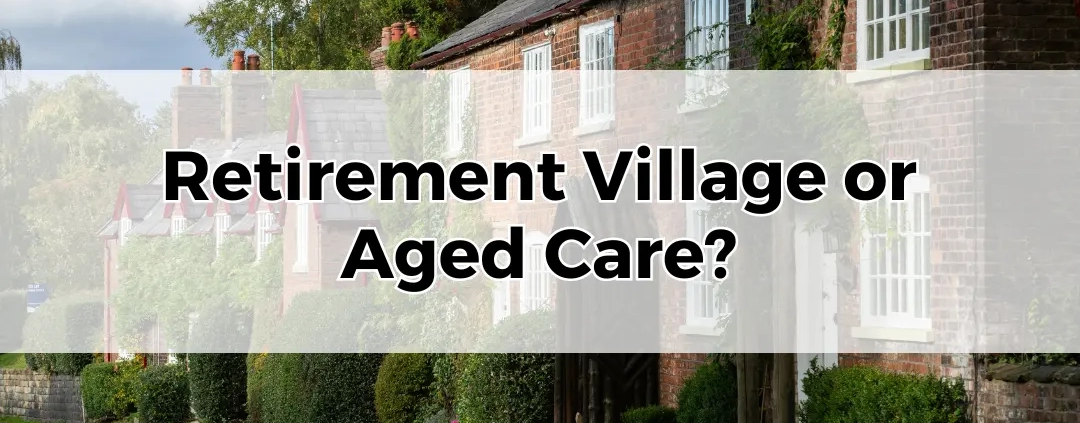Retirement Village or Aged Care?
As we advance in age, our priorities shift—especially when it comes to our living arrangements. The decision between moving into a retirement village or opting for residential aged care is nuanced, influenced by our health, levels of independence, and the kind of support we envisage needing in the future. This choice transcends mere geographical preference, intertwining closely with accessibility to care and support, affordability, and the ability to maintain daily routines within a supportive environment.
Accommodation Versus Care
The distinction between choosing a retirement village and residential aged care cannot be overstated. While both settings offer supportive environments tailored to the elderly, they diverge significantly in terms of the level of care provided, cost implications, and the degree of independence afforded to their residents. This decision should not be boiled down to a simple comparison of price and property size; rather, it requires a deeper contemplation of the support and care one anticipates needing.
Retirement Villages Versus Residential Care
Retirement villages primarily cater to individuals seeking a community of peers without sacrificing their independence. These establishments typically take care of external maintenance, including communal gardens, offering a semblance of independent living within a collective setting. While additional in-home support can be arranged, it often comes at an extra cost, with services and fees varying significantly across different villages.
In contrast, residential aged care provides a more comprehensive package, combining accommodation with round-the-clock care. This option is designed for those requiring continuous support, with costs substantially subsidised by the government. The following table offers a succinct comparison between the two options on several key aspects:
| Aspect | Retirement Village | Residential Care |
|---|---|---|
| Entry Cost (Accommodation) | Determined by the operator, often requiring a lump sum "purchase"; rental options may be available. | A set price payable as a lump sum or daily rate. |
| Tenancy Right | Typically under a lease or license with specific conditions. | A secure tenancy for life, subject to agreement terms. |
| Centrelink/DVA Means-test | Homeowner status varies based on payment, affecting eligibility and benefits. | Homeowner status may continue under certain conditions, affecting means-testing. |
| Options When Leaving | Subject to contract terms, potentially affecting capital gains and including fees for management and refurbishment. | Refund of lump sum payment for room, minus any applicable fees. |
| Cost of Care | Optional, non-subsidized services at the discretion of the operator. | Governed by means-tested fees set by the government. |
The Value of Advice
Making an informed decision between a retirement village and residential aged care requires thorough research and consideration. The emotional weight of this decision for families and older individuals alike cannot be understated. Beginning this exploratory process early can mitigate stress and ensure the preferences of the elderly are fully accounted for.
Navigating these options, understanding contractual nuances, and assessing the long-term implications of each choice can be daunting. Professional guidance can be invaluable in this context, providing clarity and facilitating informed decisions that align with personal needs, financial situations, and future care requirements.
If you’re contemplating this significant life transition, seeking advice can illuminate the path forward, helping you or your loved one choose a living arrangement that not only meets care needs but also enriches the later stages of life. Reach out today to explore how professional advice can tailor effective solutions for you and your family, ensuring your voice is heard and respected throughout this process.









